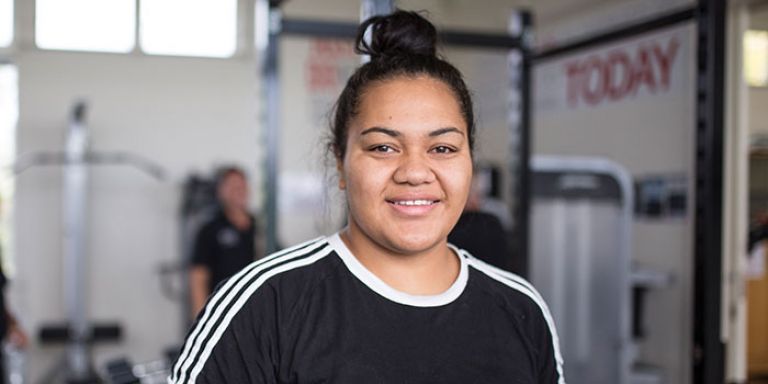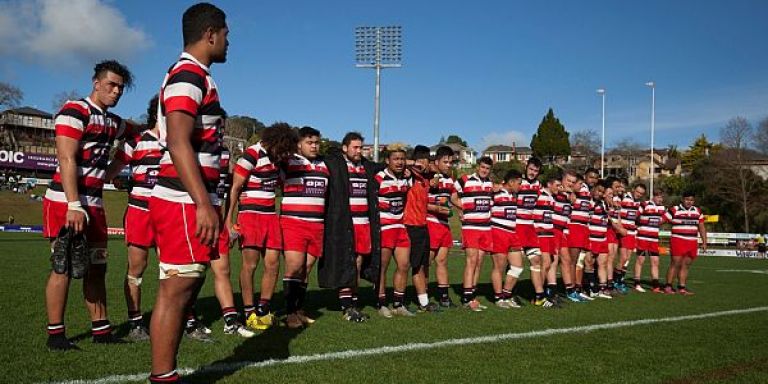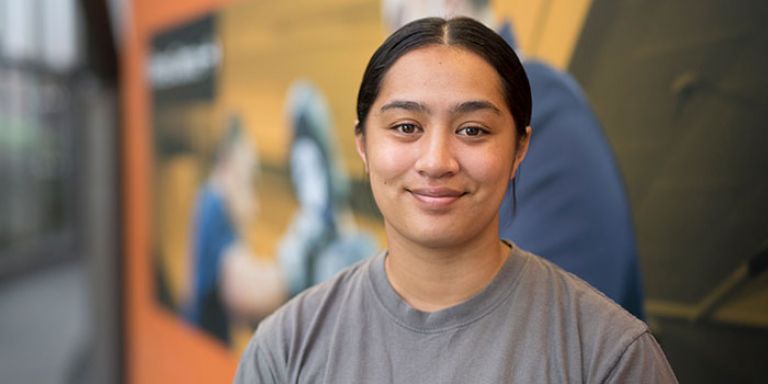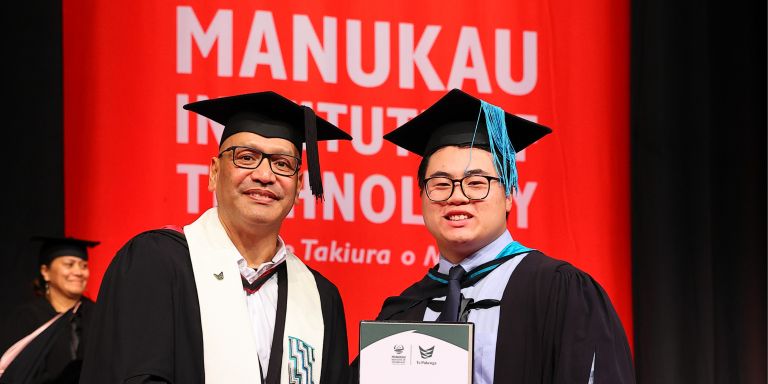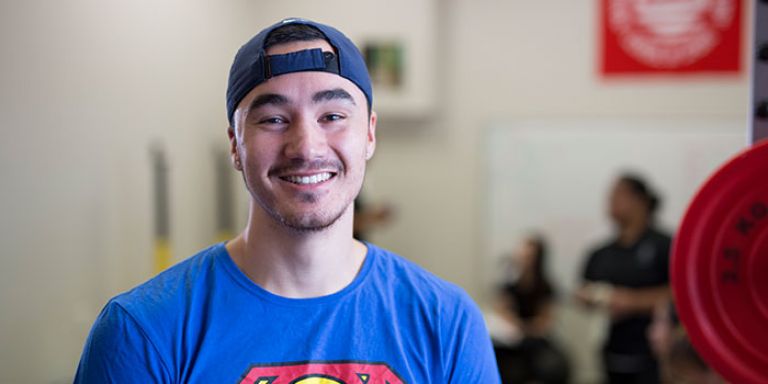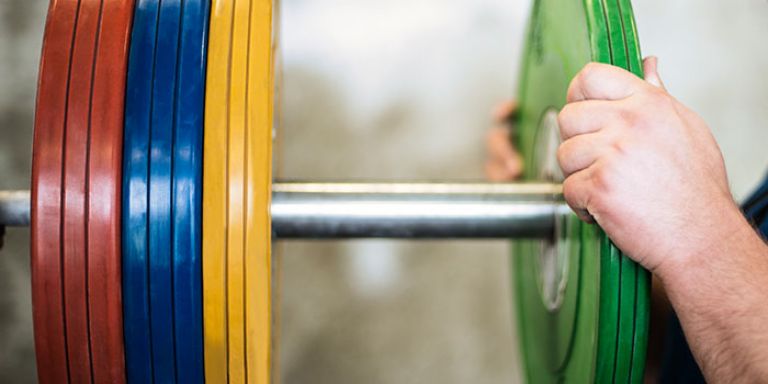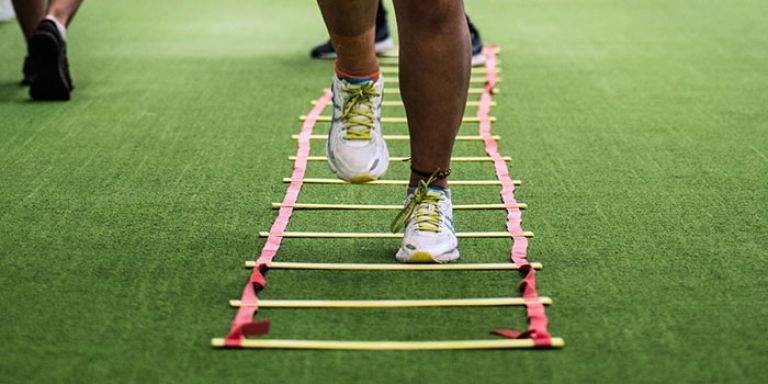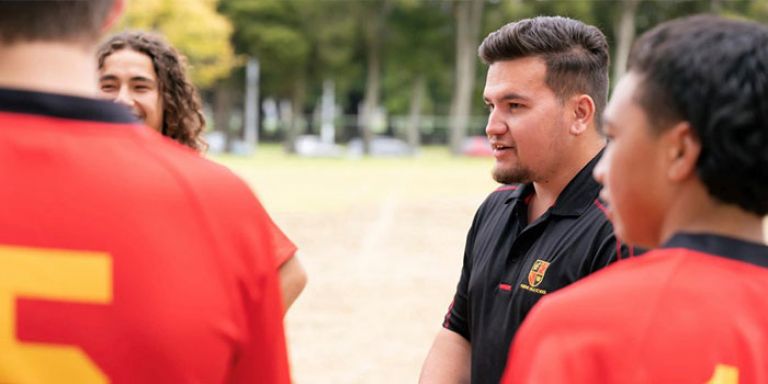Programme highlights
Take your career in sport to the next level.
This qualification builds on the New Zealand Diploma in Sport, Recreation and Exercise (Level 5). It’s perfect if you’re wanting to extend yourself as a professional in sport, recreation, exercise science, sport coaching and sport/leisure management.
Upon successful completion of this programme, you can pathway directly into the third year of our degree.
Discover or create your dream job in this exciting industry.
Entry requirements
Open entry
There are no academic requirements that need to be met to enter this programme.
English language requirements
Applicants must have sufficient competence in the English language to undertake this programme, which is taught and assessed in English.
Any applicant whose first language is not English may be required to provide evidence of their English language competency.
International students: English language entry requirements
For the minimum English language requirements refer to the requirements set out in the NZQF Programme and Accreditation Rules.
International students will generally be required to provide evidence of English language proficiency, for this programme an IELTS Academic score of 6 with no band score lower than 5.5 is required. Equivalent acceptable evidence can be seen at the following NZQA link.
Give yourself credit with Recognition of Prior Learning (RPL)
Did you know you can use the knowledge and experience you already have to your advantage?
Your previous work experience and on-the-job skills, volunteering, professional development, and other providers’ qualifications can be recognised as prior learning, matched against credits in our courses, and put towards your qualification – potentially saving you money and possibly helping you to complete your qualification faster Learn more.
Programme structure
You will need to complete five compulsory courses and three elective courses (120 credits):
Compulsory courses
781.618 Sport and Exercise Nutrition (15 credits)
This course aims to develop your appreciation and knowledge of sport and exercise nutrition and its application to sport performance.
Outcomes, hours and assessments
Learner outcomes
- Compare and contrast the nutritional recommendations and guidelines for healthy adults and athletes.
- Describe the nutritional requirements that are specific to athletes in different sports.
- Identify and correct common myths associated with sport nutrition.
- Develop nutritional strategies and manage sport nutrition programmes for optimal sport performance as an entry-level practitioner.
Learning hours
- Face-to-face: 50 hours
- Online: 30 hours
- Study: 25 hours
- Work placement/practicum: 10 hours
- Assessment activity: 35 hours
- Total: 150 hours
Assessments
- Case study: 35%
- Lab report: 35%
- Practice-based assessment: 30%
Pass criteria
An overall mark of 50% or greater is required to pass this course.
781.619 Research Methods in Sport and Exercise (15 credits)
This course introduces research concepts, design and methods in sport and exercise science. You will gain knowledge of the processes involved in research design, execution and analysis.
Outcomes, hours and assessments
Learner outcomes
- Demonstrate knowledge of research concepts and evaluate project design and methodologies in sport science.
- Identify statistical analysis and graphics software and demonstrate ability to use them in result analysis.
- Prepare a research proposal for the study of an aspect of sport and performance.
Learning hours
- Face-to-face: 50 hours
- Online: 30 hours
- Study: 25 hours
- Work placement/practicum: 10 hours
- Assessment activity: 35 hours
- Total: 150 hours
Assessments
- Research proposal: 40%
- Written practice-based assessment (statistics): 30%
- Written practice-based assessment: 30%
Pass criteria
An overall mark of 50% or greater is required to pass this course.
781.620 Injury Prevention and Rehabilitation (15 credits)
Gain a basic understanding of sports and workplace injuries, including causes, treatment, management and rehabilitation.
Outcomes, hours and assessments
Learner outcomes
- Develop and implement a sport rehabilitation programme.
- Apply knowledge of common sports injuries, treatment, and soft tissue healing.
- Explain the basis of sport medicine, injury prevention, and scope of practice.
Learning hours
- Face-to-face: 50 hours
- Online: 30 hours
- Study: 25 hours
- Work placement/practicum: 10 hours
- Assessment activity: 35 hours
- Total: 150 hours
Assessments
- Written injury report: 25%
- Practical-based assessment: 35%
- Practice-based assessment: 40%
Pass criteria
An overall mark of 50% or greater is required to pass this course.
781.621 Exercise Programme Design (15 credits)
Gain skills in the planning and design of integrated physical training programmes with a focus on analysis, presentation and evaluation.
Outcomes, hours and assessments
Learner outcomes
- Assess and report on the basic health of a client or athlete professionally and with cultural awareness.
- Conduct needs analysis and integrate results into training programmes.
- Design training programmes meeting physical and cultural needs.
- Implement resistance and cardiovascular training programmes.
Learning hours
- Face-to-face: 50 hours
- Online: 30 hours
- Study: 25 hours
- Work placement/practicum: 10 hours
- Assessment activity: 35 hours
- Total: 150 hours
Assessments
- Written assignment: 30%
- Practical labs: 30%
- Practical-based learning assessment: 40%
Pass criteria
An overall mark of 50% or greater is required to pass this course.
781.622 Sport Management and Administration Skills (15 credits)
This course introduces management and administration knowledge applicable within the sport and recreation context.
Outcomes, hours and assessments
Learner outcomes
- Identify Human Resource Management functions in a sports organisation.
- Explain operations management in sport, including ethics, risk and event management.
- Explain sport marketing in relation to various stakeholders.
Learning hours
- Face-to-face: 50 hours
- Online: 30 hours
- Study: 25 hours
- Work placement/practicum: 10 hours
- Assessment activity: 35 hours
- Total: 150 hours
Assessments
- Report: 32%
- Presentation: 36%
- Discussion board/portfolio: 32%
Pass criteria
An overall mark of 50% or greater is required to pass this course.
Elective courses
781.623 Applied Exercise Physiology (15 credits)
Further your understanding of human physiology and assessments relevant to exercise and sport performance.
Outcomes, hours and assessments
Learner outcomes
- Perform basic physical and physiological assessments.
- Understand physiological responses and adaptations to exercise.
Learning hours
- Face-to-face: 50 hours
- Online: 30 hours
- Study: 25 hours
- Work placement/practicum: 10 hours
- Assessment activity: 35 hours
- Total: 150 hours
Assessments
- Practice-based assessment 1: 35%
- Practice-based assessment 2: 35%
- Lab report: 30%
Pass criteria
An overall mark of 50% or greater is required to pass this course.
Do you want to study a single course, without enrolling into the full programme?
Courses within some of our programmes may be offered as an individual Certificate of Proficiency (COP). Programme entry requirements and course fees apply. For more information, please speak to our friendly Ask Me! team.
Further training or study
Bachelor of Applied Sport and Exercise Science (Level 7).
Career opportunities
Graduates may be able to work in leadership roles such as:
Community sports manager, community health manager, event manager, facility manager, hauora or health exercise educator, outdoor educator, outdoor recreation manager, parks manager, recreation planner, recreation manager, or a sport director.
Graduates may also be able to work within organisations such as:
Community health providers, community sports providers, outdoor education centres, exercise facilities, Iwi organisations, local councils, cultural centres, outdoor pursuits centres, primary health organisations, regional sports trusts, or recreation, sport and leisure centres. For potential salaries visit careers.govt.nz.



